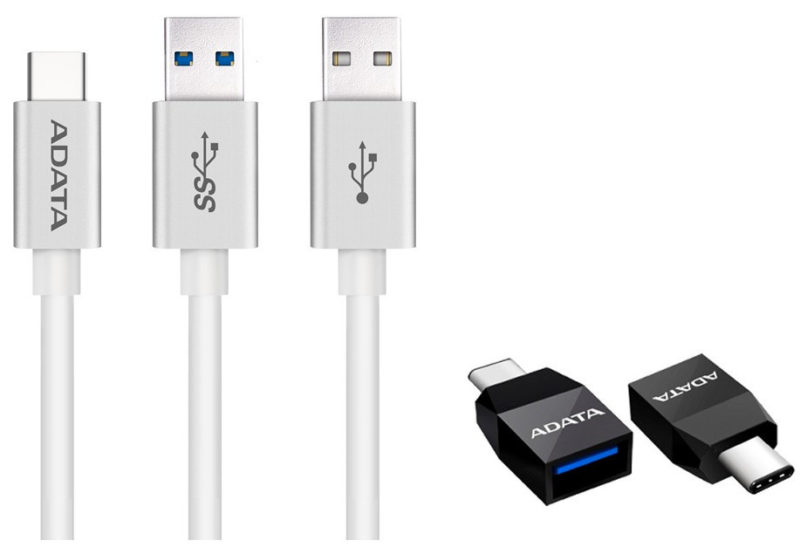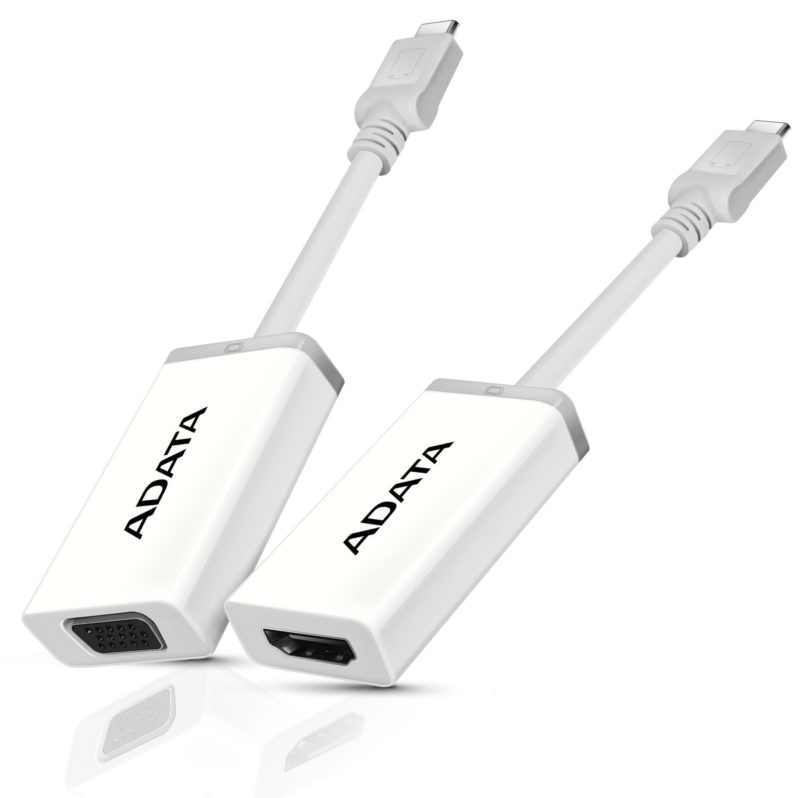ADATA Releases Huge Range of USB 3.1 Type-C Hardware
John Williamson / 8 years ago

ADATA has just announced a massive range of USB Type-C adapters and hubs designed to help improve the new interface’s adoption rate. Even though USB 3.1 Type-C products are relatively new, they’re becoming more prevalent and many users may require an adapter to sync files or access a device’s data for recovery purposes. The new series of products includes a USB-C OTC reader, USB-C Hub, USB-C video box with support for older connectors like VGA and much more. Here we can see more details regarding the adapters and cables:
Data portability: USB-C OTG Reader and USB-C Hub
Making data access eminently effortless, the USB-C OTG Reader combines USB-C, USB-A, and microSD/SDXC/SDHC support in one ultra-compact on the go product. It offers an excellent way to move content and interconnect devices. Relatedly, the USB-C Hub has USB-C, USB-A, and HDMI, with powered ports to charge devices. The HDMI port allows displaying content from devices such as notebooks and smartphones on TVs, and the inclusion of USB-A ensures wide compatibility with numerous products.

Powerful transmission: USB-C cable and adapter
ADATA USB-C cables are made using robust materials to prevent damage to wiring due to bending, twisting, or pulling. The premium build of these cables supports up to 100W thanks to an integrated E-MARK controller, accelerating device charging and enabling full USB 3.1 Gen 2 bandwidth for buffer-free UHD 4K. Additionally, ADATA is releasing compact USB-C to USB-A plug-style adapters, converting any of the many billions of USB-A cables worldwide to reversible USB-C instantly and with no loss of data delivery fidelity.

Video connectivity: USB-C to HDMI and VGA
ADATA is making available adapters that convert digital and analog content from USB-C to devices with HDMI and VGA. Products allow for easy video connections from smartphones, notebooks, tablets, and other devices with USB-C to virtually every device with a video-in, including TVs, set top boxes, game consoles, and audio/video receivers. The USB-C to VGA adapter maintains legacy support and should prove very useful for users that need to display content via projectors in business and public situations.




















